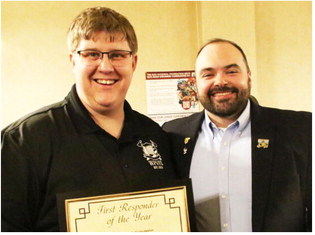Third Party Voices Struggle To Be Heard After Green Party Fight
The fight over a Republican- funded effort to qualify the Green Party for the ballot in Montana is the latest chapter in the long-running debate over whether third parties can be a serious alternative or are stuck in the role of spoiler.
Democrats successfully sued to kick the Green Party off this year’s ballot after many who signed a petition to qualify the environmental- leaning party asked to be removed once it became known Republicans had spent $100,000 to sign people up.
It is the latest episode of major parties using minor parties in an electoral system where a third option is more likely to spoil a major candidate’s run than provide a real alternative.
“The system we have in place really tends toward two parties,” Carroll College political scientist Jeremy Johnson said. “That’s not a great answer if you don’t feel at home in either party.”
Johnson said the American winner-takes-all system leads major parties to absorb as many smaller groups as possible.
This remains the case despite the rise of populism, according to Jim Messina, who served as campaign manager for President Barack Obama’s 2012 reelection and now runs campaigns around the globe. He said populist movements in other countries have fueled the growth of third, fourth and even fifth major parties.
Since the American system has all but locked out third parties, political insiders “just see them as inconsequential,” Messina said, adding they are often a means to siphon votes away from one candidate or the other.
One of the most high-profile cases of that siphoning came in 2012, when a liberal group supporting Democratic Sen. Jon Tester’s re-election spent more than $900,000 in television ads promoting the Libertarian candidate in an effort to hurt Republican Denny Rehberg. That year, the Libertarian won 6.6 percent of the vote, more than Tester’s margin of victory.
In the last decade, third parties and independents have averaged about 4.5 percent of the vote in statewide races. That excludes Libertarian Mike Fellows’ 43 percent haul for clerk of the state supreme court in 2012, a race that did not have a Republican candidate.
In this year’s fight over the Greens, Republicans said they tried to give voters more options, while Democrats called the effort misleading and asked people who signed the petition to withdraw their signatures. The Montana Commissioner of Political Practices ruled Republican efforts broke campaign finance law, which the party disputes. The state supreme court followed suit, finding unauthorized groups cannot put a party on the ballot.
The back and forth this year has left the Greens trying to catch up with their own ballot status. Adrien Wagner, acting state coordinator for the Montana Green Party, said he first heard a couple reports of signature gatherers in early February.
Wagner said the party was not involved in signature gathering and had no contact with candidates except two, for state senate and attorney general, who it had planned to endorse. He said the Democrats’ lawyers “chose to willfully misinterpret how it was stated on our Facebook page,” to argue against the whole slate.
Wagner officially stepped in as the Green Party’s acting coordinator last May and has had to balance the party’s desire for ballot access and independence.
“This one caught us off guard, it’s not the way that we want to get [ballot] access,” Wagner said, though the party still wanted at least its presidential candidate on the ballot. “Yes, it was a Republican- led effort. That doesn’t mean that we don’t deserve a voice.”
Michael O’Neil, communications manager for the national Green Party, echoed Wagner’s frustration, saying ballot access has turned into a partisan game at a time when voters crave more choice.
The Libertarian Party is already qualified for the ballot, but it also had at least one recent challenge to ballot access. In 2016, the then Republican state chairman unsuccessfully requested to remove Roger Roots, the Libertarian for secretary of state, from the ballot over issues with campaign filings.
Roots, an attorney, has run unsuccessfully as a Libertarian for several offices in recent years and is running this year for state auditor, Montana’s watchdog for insurance and securities.
Roots served as a volunteer paralegal for Ryan Bundy, one of 26 charged in connection with the 2016 armed takeover of a wildlife refuge in Oregon, The Oregonian first reported. Roots has a criminal record, including resisting arrest, violating probation and possession of an unregistered firearm. He said he hasn’t spent a night in jail in 25 years and he would focus on investigating the government as a tireless advocate for individual liberty if elected.
The Libertarian candidate for governor and CEO of Hoplite Armor, Lyman Bishop, has argued federal ownership of land in Montana is unconstitutional and is concerned about protecting peoples’ rights, including Second Amendment rights.
Kevin Leatherbarrow, the Libertarian candidate for superintendent of public instruction, runs Go and Grow tutoring center and said he is frustrated with the education system and supports school choice and more funding for special education.
One Libertarian candidate for state house, independent Doug Campbell, previously ran for office as a Green and said both parties can offer an appealing alternative.
“The Green Party and the Libertarian Party really have a lot in common as far as non-intervention in foreign policy, providing individuals with all of the constitutional rights and not corporations, and getting corruption out of the system,” Campbell said.
Campbell said he thinks a lack of third parties leads people to not vote at all.

